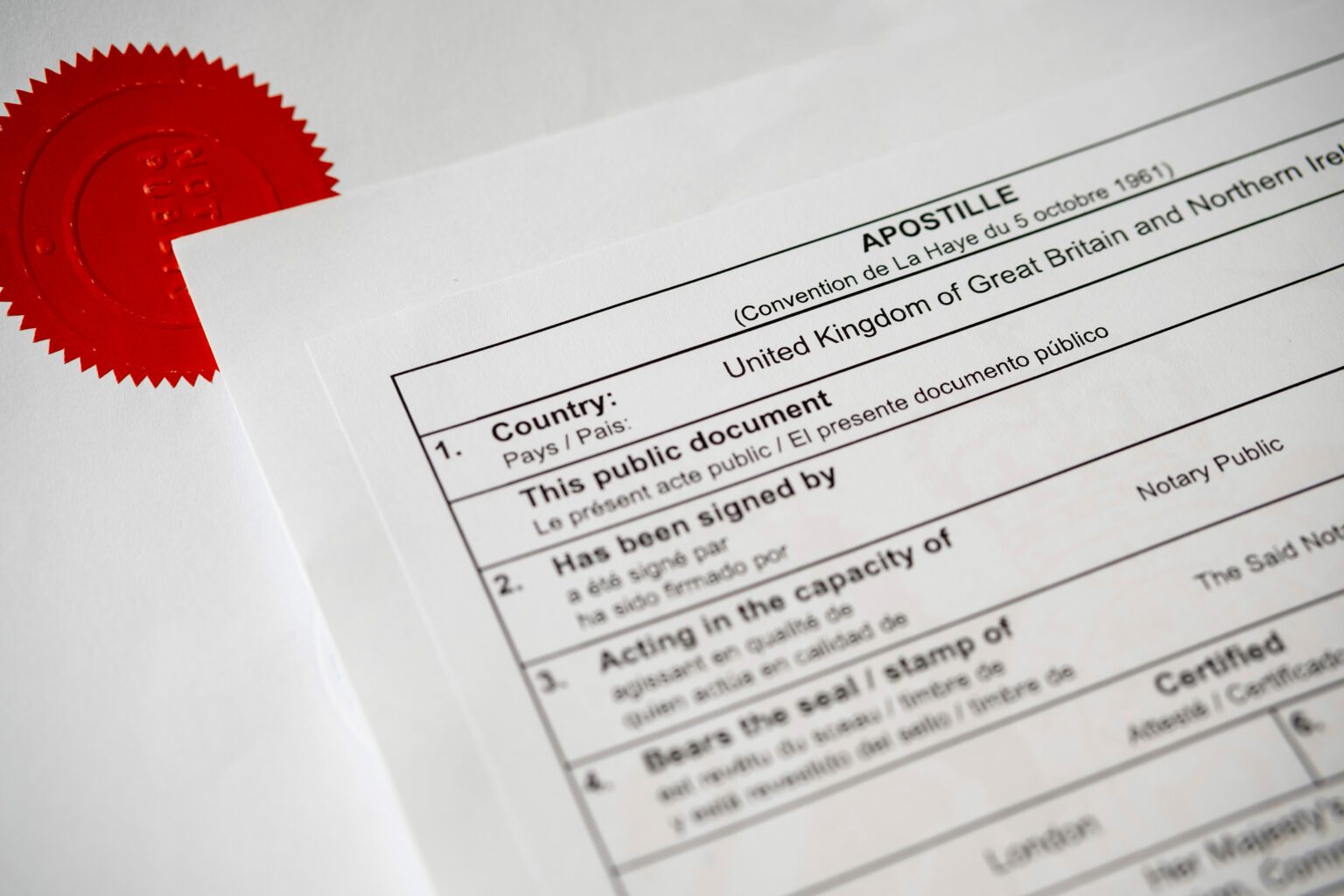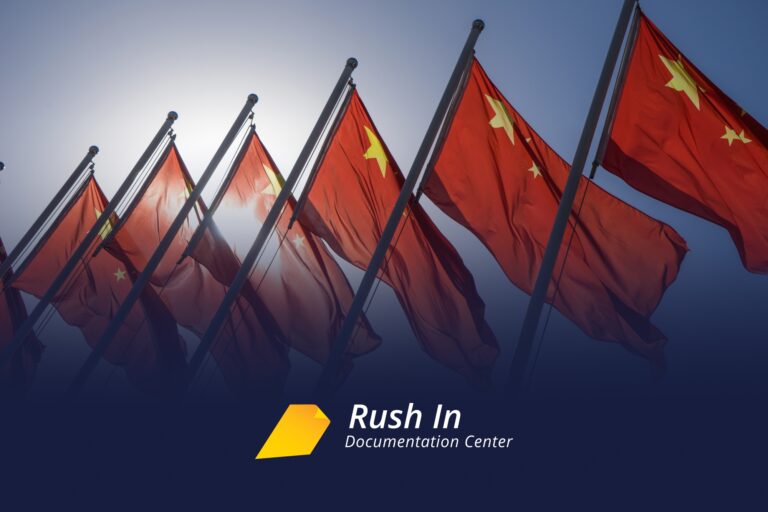Welcome to a pivotal moment in global document authentication – China has officially joined the Apostille Convention, and it’s a game-changer. No more bureaucratic nightmares for those dealing with international documents.
Whether you’re a student eyeing overseas studies or a business venturing into international waters, China’s move promises to simplify the process. In the past, getting documents recognized abroad was a complex and frustrating task.
But now, with China on board, we’re looking at a smoother, more efficient path. Join us as we unpack why China’s decision matters and how it addresses longstanding challenges. Let’s dive in.
What is the Apostille Convention?

So, what exactly is the Apostille Convention? To understand it, let’s rewind a bit to 1961 when The Hague Convention came into play. This international treaty laid the groundwork for simplifying the authentication of documents for use abroad.
Fast forward to today, and we have the Apostille Convention, a specific offspring of The Hague Convention. In simple terms, the Apostille is like a universal stamp of approval agreed upon by member countries of The Hague Convention.
It’s a streamlined process that ensures your documents are recognized without the need for extensive and perplexing procedures. Let’s break it down:
- Universal Acceptance: The Apostille Convention acts like a universal stamp, ensuring that your documents are accepted in participating Apostille Hague Convention countries without the need for further authentication.
- Simplified Process: It condenses the often intricate process of document legalization into a single, standardized step, making it more straightforward and efficient. To make things even simpler for you, you can get notary public services to hasten the process.
- Expedited Recognition: Apostille accelerates the recognition of your documents abroad, ensuring that they don’t get stuck in lengthy bureaucratic procedures.
- Versatility: Whether it’s a birth certificate, marriage license, or academic transcripts, the Apostille treaty covers a wide range of documents, providing a comprehensive solution. Non-Hague Convention countries of 2023 do not enjoy these benefits.
- Global Recognition: With China joining the Apostille Convention, your documents gain recognition in countries that are part of this international agreement, reducing the hurdles posed by borders.
- Cost Efficiency: By eliminating the need for multiple levels of authentication, Apostille helps reduce both the time and costs associated with the legalization process.
Document Authentication in China Before the Apostille Convention
If you’re asking, is China part of the Hague Convention? Yes, China is no longer on the list of Non-Hague Countries in 2023. Before embracing the Apostille Convention and joining the League of Apostille Convention countries, the process of document authentication required additional steps for non-Hague countries, including China.
Here’s a glimpse of the struggles:
- Bureaucratic Hurdles: Individuals and businesses in China faced a bureaucratic maze when seeking to authenticate their documents for international use. Without apostille in China, the multi-step process often resulted in delays and added frustrations.
- Time-Consuming Procedures: Before there was Apostille in Chinese, the traditional authentication procedures were time-consuming. This not only prolonged the entire process but also raised concerns about timely recognition abroad.
- Complex and Confusing: The intricacies of document authentication were a challenge in themselves. Understanding the different requirements and procedures added an extra layer of complexity for those seeking to legitimize their documents for global use. However, you may still need document translation services, depending on your situation.
- Legalization Costs: The process of document legalization before the Apostille Convention incurred additional expenses. Individuals and businesses had to bear the financial burden of legalizing their documents, making it an expensive and often prohibitive venture.
- Limited Recognition: Documents authenticated through the traditional process faced limitations in recognition. This hindered individuals and businesses from fully leveraging their documents on the international stage, impacting opportunities for education, business collaborations, and more.
China's Decision to Join

In a significant stride towards simplifying international document legalization, China has officially embraced the Apostille Convention. This decision holds profound implications for individuals and businesses, marking a departure from the complexities of traditional document authentication.
Here’s why China’s move to join Hague Convention Apostille countries is a game-changer:
- Streamlining the Process: By becoming a part of the Apostille Hague Convention, China is streamlining the document legalization process. This means a shift from intricate, multi-step procedures to a more efficient and standardized approach.
- International Recognition: Joining the Apostille Convention means that China’s documents will now be recognized in the participating countries without the need for additional layers of authentication. It’s a move towards a more globally recognized and accepted documentation system.
- Facilitating Global Transactions: For businesses engaging in international transactions, China’s involvement in the Apostille Convention simplifies the paperwork involved. This move enhances the ease of doing business across borders, reducing bureaucratic hurdles.
- Individual Benefits: On a personal level, individuals dealing with documentation for purposes like education or immigration will experience a smoother process. China’s decision makes it easier for individuals to navigate the complexities of document authentication.
- Enhanced Diplomatic Relations: China’s commitment to the Apostille Convention signifies a willingness to align with global standards. This move fosters stronger diplomatic ties with other Hague Convention Apostille countries, promoting international cooperation and understanding.
China’s decision to join the Apostille Convention is a strategic move towards a more connected, efficient, and globally harmonized approach to document authentication.
Impact on Global Relations
China’s decision to become a part of the Apostille Convention is not only a significant step for individuals and businesses but also holds broader implications for global relations. Here’s how this move contributes to fostering positive international ties:
- Streamlined Diplomatic Processes: The Apostille Convention creates a more efficient and standardized method for document legalization. This not only benefits individuals and businesses but also facilitates smoother diplomatic processes between China and other participating nations.
- Enhanced Cross-Border Cooperation: With a simplified document authentication system, the hurdles for cross-border cooperation are reduced. This has the potential to strengthen partnerships and collaborations between China and other countries, fostering a more cooperative global environment.
- Mutual Recognition of Documents: The Apostille Convention promotes mutual recognition of documents among participating countries. This mutual trust is crucial for building stronger diplomatic relationships, creating a foundation for increased collaboration in various fields.
- Positive Economic Impact: As international business transactions become more straightforward, it contributes to a positive economic impact. The ease of doing business across borders can lead to increased trade and investment opportunities, benefiting both China and its international partners.
- Harmonizing Legalization Standards: The Apostille Convention harmonizes the standards for document legalization across countries. This standardization fosters a sense of consistency and reliability in global relations, promoting transparency and trust.
Embrace the Apostille Advantage with Rush In Documentation!
In conclusion, China’s entrance into the Apostille Convention marks a pivotal moment, not just in bureaucratic procedures but in shaping a more accessible, interconnected global landscape. The implications are profound, reaching beyond individual document authentication to positively impact businesses, international relations, and economies.
The Apostille Convention is a catalyst for efficiency, recognition, and collaboration. Whether you’re an individual seeking seamless document authentication or a business aiming for smoother international transactions, the Apostille advantage awaits.
Embrace the future of global document handling with confidence – and for swift and reliable apostille services, consider Rush In Documentation for top-notch Apostille services. It’s time to experience a new era of accessibility and cooperation. Call us today!



